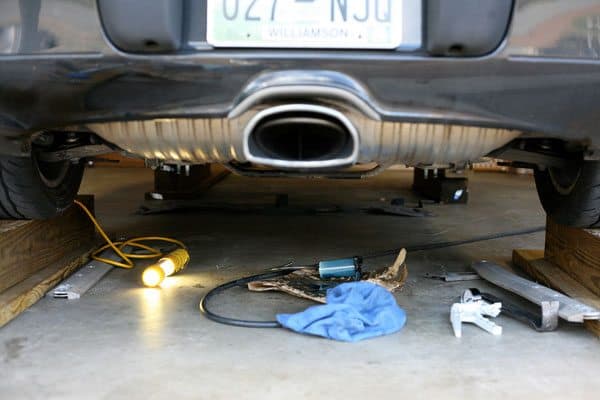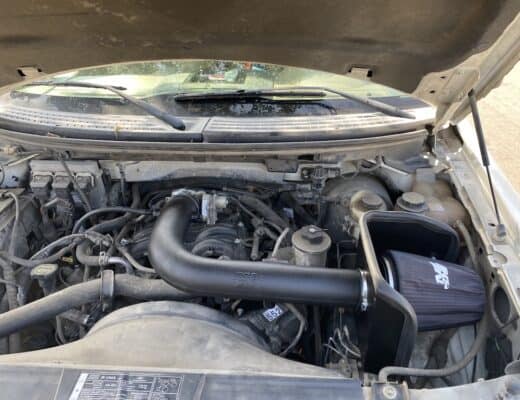Regular vehicle maintenance is crucial for keeping your vehicle in top condition. By performing routine maintenance tasks and addressing issues promptly, you can enhance the longevity and performance of your vehicle while preventing unexpected breakdowns.

In this article, we will discuss some essential maintenance tips that you can follow to keep your vehicle running smoothly.
Understanding the Importance of Regular Vehicle Maintenance
Regular maintenance plays a vital role in ensuring the longevity of your vehicle. By properly maintaining your car, you can avoid costly repairs down the line. Additionally, regular maintenance helps to optimize your vehicle’s performance and improve fuel efficiency, saving you money at the pump. Let’s take a closer look at the importance of maintenance in vehicle longevity and performance.
The Role of Maintenance in Vehicle Longevity
Maintaining your vehicle’s components and systems can significantly extend its lifespan. Regular oil changes, filter replacements, and fluid checks help to prevent excessive wear and tear on your engine, ensuring it runs smoothly. Similarly, maintaining belts, hoses, and spark plugs can prevent breakdowns and expensive repairs, maximizing the lifespan of your vehicle.
Imagine your car as a well-oiled machine, with each part working in harmony to keep you on the road. Just like any machine, your car needs regular maintenance to keep all its parts functioning optimally. By taking care of your vehicle, you are investing in its longevity and reliability. It’s like giving your car a spa day, pampering it with the attention it deserves.
How Maintenance Enhances Vehicle Performance
A properly maintained vehicle performs optimally. Regular maintenance tasks, such as inspecting and replacing worn-out tires, improve traction and reduce the risk of accidents. Additionally, routine tune-ups can enhance your vehicle’s fuel efficiency, allowing you to save money on gas expenses.
Think of maintenance as the secret ingredient that takes your vehicle’s performance to the next level. It’s like giving your car a boost of energy and agility, making it feel like it’s gliding on the road effortlessly. With each maintenance task checked off the list, your vehicle becomes more responsive, reliable, and enjoyable to drive.
Preventive Measures Against Unexpected Breakdowns
No one wants to be stranded on the side of the road due to a breakdown. By following a regular maintenance schedule, you can identify potential issues before they become major problems. Tasks such as checking the battery, inspecting the brakes, and maintaining the cooling system can help prevent unexpected breakdowns and keep you safe on the road.
Picture yourself cruising down the highway, enjoying the freedom of the open road. Suddenly, your car starts making strange noises, and you feel a sense of panic creeping in. But wait! You remember that you’ve been diligent with your vehicle’s maintenance. Thanks to your proactive approach, you avoid the stress and inconvenience of a breakdown. Instead, you continue your journey with peace of mind, knowing that your car is in top-notch condition.
Basic Maintenance Tasks You Can Do Yourself
While some maintenance tasks require the help of a professional, there are several basic tasks that you can easily perform yourself. By doing so, you can save money on labor costs and gain a better understanding of your vehicle. Let’s explore a few common maintenance tasks that you can handle on your own.
Performing regular maintenance on your vehicle not only saves you money but also helps in extending the lifespan of your car. It’s a great way to stay connected with your vehicle and ensure its optimal performance on the road. Let’s delve into a couple more DIY maintenance tasks that can keep your vehicle in top condition.
Checking and Changing Your Oil
Regular oil changes are essential for keeping your engine running smoothly. By checking your oil levels and changing the oil and oil filter when needed, you can prevent engine damage and maintain optimal performance.
Oil acts as the lifeblood of your engine, lubricating its moving parts and reducing friction. Over time, oil breaks down and becomes less effective, potentially leading to engine wear and decreased performance. By adhering to a regular oil change schedule, you can ensure that your engine stays well-lubricated and performs at its best.
Changing Air Filter
Your vehicle requires clean air to operate correctly, so you should make sure to change your air filter at the recommended intervals.
If you have an aftermarket air filter like a K&N filter, then you can save time and money on filters, but you still need to periodically make sure it’s properly hooked up and that there are no blockages.
Maintaining Proper Tire Pressure
Proper tire pressure is crucial for safety and fuel efficiency. Regularly checking and adjusting tire pressure can extend the life of your tires, improve handling, and reduce the risk of a blowout.
Under-inflated tires can lead to increased fuel consumption and uneven tire wear, affecting both your wallet and your safety on the road. By investing in a simple tire pressure gauge and checking your tire pressure regularly, you can ensure that your tires are properly inflated, promoting better fuel efficiency and enhancing your vehicle’s handling.
Replacing Windshield Wipers
Clear visibility is essential for safe driving. Damaged or worn-out windshield wipers can hinder your ability to see the road clearly, especially during adverse weather conditions. By regularly inspecting and replacing your windshield wipers, you can ensure clear visibility at all times.
Windshield wipers play a crucial role in maintaining visibility during rain, snow, or any other inclement weather. Over time, wiper blades can become cracked or torn, reducing their effectiveness. By replacing your windshield wipers at least once a year or when you notice streaking or smearing on your windshield, you can ensure that you have a clear view of the road ahead, enhancing your safety while driving.
When to Seek Professional Help for Vehicle Maintenance
While DIY maintenance tasks can save time and money, there are instances when it is best to leave the job to the professionals. Recognizing the signs of potential issues and seeking professional help can prevent further damage and ensure your safety on the road. Let’s explore some situations where professional assistance is necessary.
Understanding the Signs of Engine Trouble
If you notice warning signs such as unusual noises, excessive smoke, or a decrease in performance, it’s essential to seek professional help. These symptoms could indicate underlying engine issues that require the expertise of a qualified mechanic.
Brake Maintenance and Safety
Brakes are a critical safety component of your vehicle. If you experience any warning signs such as squealing or grinding noises, reduced stopping power, or a pulsating brake pedal, it’s important to have your brakes inspected and serviced by a professional.
Dealing with Transmission Issues
The transmission is responsible for shifting gears and transferring power from the engine to the wheels. Transmission problems can lead to major issues and costly repairs. If you experience any signs of transmission trouble like slipping gears or delayed shifting, it’s crucial to consult a professional for diagnosis and repairs.
Seasonal Vehicle Maintenance Tips
In addition to regular maintenance tasks, seasonal maintenance is essential for keeping your vehicle in optimal condition throughout the year. Let’s explore some seasonal maintenance tips to help you prepare your vehicle for different weather conditions.
Preparing Your Vehicle for Winter
Winter weather can be harsh on your vehicle. To ensure safe driving during winter months, it’s important to take several measures. These include checking and replacing antifreeze, inspecting the battery, and installing winter tires for improved traction on icy roads.
Summer Maintenance Checklist
Summer brings its own set of challenges for your vehicle. To prevent overheating and other issues, it’s crucial to check the cooling system, inspect the air conditioning, and ensure proper tire pressure. Regularly washing and waxing your vehicle can also protect the paint from the damaging effects of the sun.
By following these essential maintenance tips, you can keep your vehicle running smoothly, extend its lifespan, and ensure your safety on the road. Remember, prevention is key, so don’t delay in addressing any maintenance needs that arise. Regular maintenance will not only save you money in the long run but also provide you with a stress-free driving experience.



